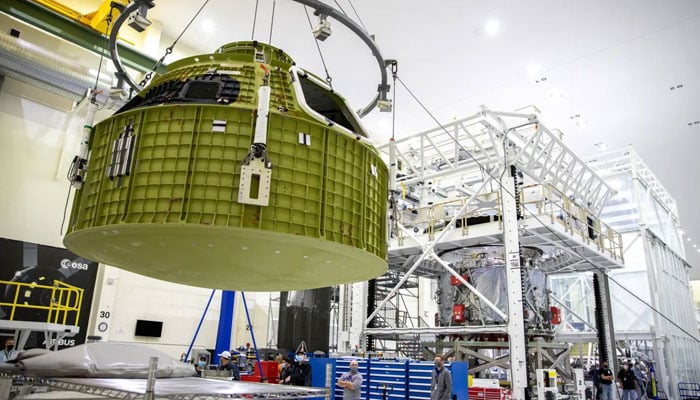Nasa won't send astronauts on moon missions until 2026
Nasa's Artemis II mission — originally planned to be launched later this year — has been delayed till 2025
The National Aeronautics and Space Administration (Nasa) officially postponed its plans to send astronauts close to the moon recently, as the space agency works to address safety concerns on its new rocket system.
Nasa officials on X, formerly known as Twitter, announced that the launch of Artemis II, a mission involving four astronauts travelling around the moon, has been pushed further until September 2025, the HuffPost reported.
The mission, which was previously going to be launched later this year, is set to mark the first time a crew on Nasa's Space Launch System rocket and Orion spacecraft will be onboard the agency's spacecraft.
Additionally, the next mission, Artemis III, will also be pushed to September 2026, marking the first landing on the moon by a Nasa crew since 1972, including the first woman and first person of colour.
Meanwhile, a subsequent manned mission to the first space station around the moon, dubbed Artemis IV, is on track for launch in 2028.
"We are returning to the moon in a way we never have before, and the safety of our astronauts is Nasa's top priority as we prepare for future Artemis missions," Nasa Administrator Bill Nelson said in a statement.
He continued: "We've learned a lot since Artemis I and the success of these early missions relies on our commercial and international partnerships to further our reach and understanding of humanity’s place in our solar system."
Nasa is extending delays to the Artemis programme due to safety and life support system issues that the agency said "require additional time to resolve."
The agency is also investigating the unexpected loss of part of the unmanned Artemis I's heat shield, which is expected to finish in spring.
"We are resolving challenges associated with first-time capabilities and operations, and we are closer than ever to establishing sustained exploration of Earth's nearest neighbour under Artemis," Catherine Koerner, the associated administrator of Nasa's Exploration Systems Development Mission Directorate, said in a statement.
-
Shanghai Fusion ‘Artificial Sun’ achieves groundbreaking results with plasma control record
-
Polar vortex ‘exceptional’ disruption: Rare shift signals extreme February winter
-
Netherlands repatriates 3500-year-old Egyptian sculpture looted during Arab Spring
-
Archaeologists recreate 3,500-year-old Egyptian perfumes for modern museums
-
Smartphones in orbit? NASA’s Crew-12 and Artemis II missions to use latest mobile tech
-
Rare deep-sea discovery: ‘School bus-size’ phantom jellyfish spotted in Argentina
-
NASA eyes March moon mission launch following test run setbacks
-
February offers 8 must-see sky events including rare eclipse and planet parade












